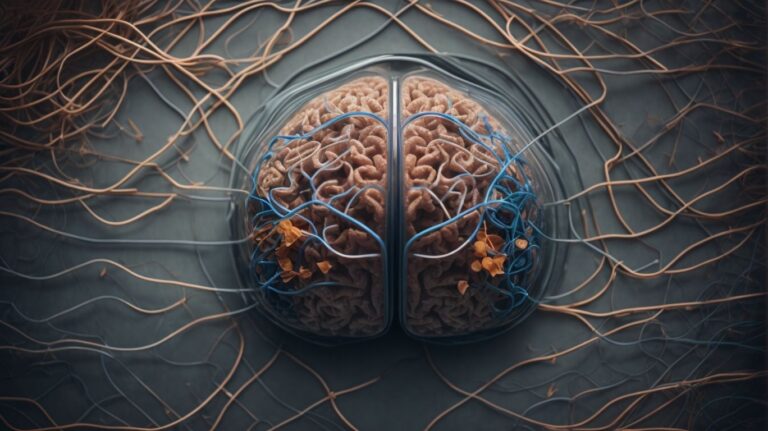Have you ever wondered what it truly means to be whole in the realm of psychology? The concept of wholeness, rooted in the holistic approach, has a rich history that has shaped the field of psychology as we know it today.
From the influence of Carl Jung to the development of humanistic psychology, the journey towards understanding the interconnectedness of mind, body, and spirit has been a transformative one. In this article, we will explore the importance of wholeness in mental health, the practices for achieving it, and the challenges and criticisms that come with adopting a holistic approach.
Join us as we delve into the world of wholeness in psychology and discover how it can be incorporated into traditional therapy for a more comprehensive and effective approach to mental well-being.
Contents
- 1 Key Takeaways:
- 2 What Is Wholeness in Psychology?
- 3 The History of Wholeness in Psychology
- 4 The Holistic Approach to Psychology
- 5 The Importance of Wholeness in Mental Health
- 6 Practices for Achieving Wholeness
- 7 Challenges and Criticisms of the Holistic Approach
- 8 Incorporating Wholeness into Traditional Therapy
- 9 Frequently Asked Questions
- 9.1 What is the concept of wholeness in psychology?
- 9.2 How does a holistic approach differ from traditional approaches in psychology?
- 9.3 Why is the concept of wholeness important in psychology?
- 9.4 How can a holistic approach benefit mental health treatment?
- 9.5 What are some techniques used in a holistic approach in psychology?
- 9.6 Can a holistic approach be applied to all areas of psychology?
Key Takeaways:
What Is Wholeness in Psychology?
Wholeness in psychology refers to the holistic approach that considers the interconnected aspects of the mind and body to achieve optimal health and wellness.
This approach emphasizes the importance of looking at individuals as a whole entity, rather than focusing solely on symptoms or isolated issues.
By addressing the interconnectedness of thoughts, feelings, physical sensations, and behaviors, holistic therapy aims to promote harmony and balance within the individual.
Through techniques such as mindfulness, meditation, yoga, and nutritional counseling, individuals can cultivate a deeper understanding and connection between their mental and physical well-being, leading to improved overall health and quality of life.
The History of Wholeness in Psychology
The history of wholeness in psychology dates back to influential figures such as Carl Jung, who emphasized the interconnectedness of the human psyche and the holistic view of individual behavior.
Carl Jung, a Swiss psychiatrist and the founder of analytical psychology, introduced the concept of the collective unconscious. He suggested that there is a shared unconscious that connects all individuals. Jung believed that exploring this deeper layer of the psyche was essential for achieving self-realization and understanding the complexities of human nature.
- Jung’s theories marked a significant shift in psychological thinking. They moved away from reductionist approaches and towards a more comprehensive understanding of the human mind.
- His emphasis on symbolism, archetypes, and the integration of opposites influenced the development of holistic approaches in psychology.
The Influence of Carl Jung
Carl Jung’s influence in psychology was profound, as he delved into the depths of the human psyche, bridging the gap between behaviorism, social psychology, and humanistic theories with his holistic view.
His groundbreaking concepts like the collective unconscious and archetypes revolutionized the field, shaping the understanding of human behavior and personality.
Jung‘s emphasis on the interconnectedness of mind, body, and spirit paved the way for a more integrated approach to psychological well-being. His work laid the foundation for modern psychodynamic therapy, influencing renowned psychologists and therapists globally.
The Development of Humanistic Psychology
The development of humanistic psychology by pioneers like Carl Rogers and Abraham Maslow marked a shift towards holistic approaches that focused on individuality, self-actualization, and the interconnected aspects of human behavior.
Humanistic psychology emerged as a response to the limitations of behaviorism and psychoanalysis, emphasizing a more person-centered approach. Carl Rogers, known for his client-centered therapy, believed in the inherent goodness of individuals and the importance of empathy and unconditional positive regard in therapy sessions.
Abraham Maslow, on the other hand, introduced the concept of a hierarchy of needs, illustrating the progression of human motivation from basic survival needs to self-actualization. Both Rogers and Maslow highlighted the significance of subjective experiences, free will, and personal growth in understanding human behavior. Their work paved the way for a more humanistic and optimistic view of psychology, encouraging individuals to strive for self-fulfillment and a deeper understanding of themselves.
The Holistic Approach to Psychology
The holistic approach to psychology adopts a comprehensive view of the individual as a complex being, acknowledging the interconnected aspects of the mind, body, and behavior within a system.
By considering the person as more than just the sum of their parts, holistic psychology delves into the deeper relationship between emotional well-being, physical health, social interactions, and even spiritual beliefs.
This approach seeks to understand how various factors interact and influence each other, shaping an individual’s thoughts, feelings, and actions. It emphasizes the integration of different perspectives, from cognitive processes to environmental influences, in exploring the complexities of human experience.
Holistic psychology values the significance of personal growth, mindfulness practices, and the acceptance of diverse perspectives in fostering mental wellness and self-fulfillment.
Understanding the Mind-Body Connection
Understanding the mind-body connection is fundamental in the holistic approach to psychology, drawing insights from holistic medicine, philosophy, and ecological perspectives to illuminate the interplay between mental and physical well-being.
Research in this area has shown that our thoughts and emotions can significantly impact our physical health.
For example, excessive stress or anxiety can manifest as physical symptoms like headaches or digestive issues, highlighting the intricate link between our mental state and bodily functions.
Practices such as meditation and mindfulness have gained popularity for their ability to improve both mental clarity and physical health, reinforcing the notion that a balanced mind contributes to a healthy body.
Incorporating Eastern Philosophies
Incorporating Eastern philosophies enriches the holistic approach to psychology, offering insights into holistic living, perspectives, and modalities that emphasize balance and interconnectedness.
Eastern philosophies such as Taoism, Buddhism, and Yoga bring unique perspectives that value the interconnectedness of mind, body, and spirit. These traditions often emphasize mindfulness, meditation practices, and a deep understanding of the self and its connection to the world around.
Mindfulness techniques from Zen Buddhism, for example, have been integrated into modern psychological therapies to promote emotional balance and self-awareness.
The concept of energy flow and balance in Traditional Chinese Medicine has influenced practices like acupuncture and Qi Gong, showcasing a holistic view of health and well-being.
Emphasizing Individuality and Self-Actualization
Emphasizing individuality and self-actualization within the holistic approach to psychology underscores the significance of human motivation, internal and external factors, and the journey towards realizing one’s full potential.
The concept of individuality in psychology delves into the unique qualities that differentiate each person, highlighting the intrinsic desire for personal growth and fulfillment.
Understanding self-actualization involves exploring one’s innate capabilities and striving to achieve one’s highest aspirations. Internal influences such as beliefs, values, and mindset play a crucial role in shaping individual motivation, while external factors like societal expectations and cultural norms also impact the pursuit of self-fulfillment. By navigating these complexities, individuals can embark on a journey of self-discovery and actualization.
The Importance of Wholeness in Mental Health
Wholeness plays a crucial role in mental health, encompassing holistic treatment approaches that address underlying issues, promote self-awareness, and enhance social relationships, while considering neurotransmitter levels for holistic healing.
When looking at mental health from a holistic perspective, it is essential to recognize that the mind and body are interconnected.
Self-awareness is a key component of achieving wholeness, allowing individuals to understand their thoughts, emotions, and behaviors in a comprehensive manner. By incorporating practices such as mindfulness and therapy that delve into one’s inner world, individuals can gain insights into the root causes of their mental health struggles.
Building strong social relationships is another integral aspect of fostering wholeness in mental health. Human beings are social creatures, and the quality of our connections with others can significantly impact our emotional well-being. Nurturing supportive relationships that provide a sense of belonging and understanding can serve as a powerful protective factor against mental health challenges.
Addressing Underlying Issues
Addressing underlying issues through holistic treatment involves a comprehensive evaluation of the individual, considering external factors that contribute to mental health challenges and implementing holistic interventions.
Individualized care is essential in tailoring treatment plans to cater to the unique needs of each person, taking into account their background, experiences, and personal preferences. By acknowledging external influences such as social connections, lifestyle choices, and environmental stressors, mental health professionals can create a more effective support system to address these underlying issues.
The holistic interventions encompass a wide range of approaches, including therapy, nutrition, exercise, mindfulness techniques, and alternative medicine, with the overarching goal of promoting well-being on all levels – emotionally, physically, and spiritually. By integrating these diverse modalities, individuals can experience a more comprehensive and balanced approach to healing, focusing on the interconnectedness of mind, body, and spirit.
Promoting Self-Awareness and Self-Care
Promoting self-awareness and self-care is essential in fostering mental wellness, encouraging individuals to maintain a balanced lifestyle that considers internal factors and supports holistic well-being.
Self-awareness involves understanding one’s emotions, thoughts, and behaviors, leading to improved emotional regulation and interpersonal relationships.
By practicing self-care, individuals prioritize their mental and physical well-being, reducing stress levels and enhancing overall resilience. Engaging in activities such as mindfulness meditation, regular exercise, and seeking professional help when needed can significantly contribute to a healthier mindset and improved mental health. Taking small steps each day to focus on self-awareness and self-care can have long-lasting positive effects on mental wellness.
Encouraging a Balanced Lifestyle
Encouraging a balanced lifestyle is paramount in holistic mental health, reflecting the holistic living ethos that considers diverse aspects of human motivation and perspectives for well-rounded well-being.
Incorporating mindfulness practices, such as meditation and yoga, into daily routines can significantly contribute to mental wellness. These practices promote self-awareness and reduce stress levels.
Nurturing meaningful relationships with family and friends is crucial for emotional support and a sense of belonging. These are key elements in maintaining a healthy state of mind.
Engaging in regular physical activity and following a nourishing diet not only improves physical health, but also enhances mental clarity and overall mood.
Practices for Achieving Wholeness
Practices for achieving wholeness encompass a diverse range of activities such as meditation, mindfulness, yoga, movement exercises, and creative expression that foster holistic well-being.
Engaging in regular meditation sessions can help individuals cultivate a sense of inner peace and clarity while reducing stress levels. Mindfulness practices encourage individuals to stay present in the moment, fostering a deeper connection to oneself and the surrounding environment.
Incorporating yoga into one’s routine not only enhances physical flexibility but also promotes mental relaxation and emotional balance.
- Movement exercises like dance, Qi Gong, or Pilates can be therapeutic, stimulating energy flow and aiding in resilience-building.
- Exploring creative expression through art, music, or writing provides a cathartic outlet for emotions, nurturing self-discovery and personal growth.
Meditation and Mindfulness
Meditation and mindfulness practices are integral holistic modalities that enhance human motivation, promoting inner peace, and holistic well-being through focused awareness and mental clarity.
Through the practice of meditation and mindfulness, individuals can train their minds to cultivate a greater sense of self-awareness and a deeper connection to the present moment. This heightened awareness not only aids in reducing stress and anxiety but also fosters a more profound understanding of one’s thoughts, emotions, and behaviors.
By incorporating mindfulness into daily routines, individuals can improve their overall well-being by fostering a sense of balance and tranquility in both mind and body.
Yoga and Movement
Yoga and movement practices contribute to holistic healing, incorporating elements of expressive arts therapy to foster physical and emotional well-being through mindful body movements and creative expression.
One of the key benefits of these practices is their ability to bring balance and harmony to the mind and body. By engaging in deliberate movements and breathwork, individuals can release tension, improve flexibility, and enhance posture.
The meditative aspect of yoga encourages present-moment awareness, which can help individuals manage stress, anxiety, and even depression. Through regular practice, practitioners often experience increased self-awareness and emotional resilience.
Yoga also promotes a sense of connectedness with oneself and others, fostering a supportive community that encourages personal growth and exploration.
Creative Expression
Creative expression serves as a transformative tool in holistic living, aligning with principles of transpersonal therapy and somatic therapy to tap into the deeper aspects of the self and promote holistic well-being.
By engaging in various forms of creative expression such as art, music, dance, or writing, individuals can unlock suppressed emotions, explore hidden narratives, and confront unresolved issues. This can lead to a profound sense of self-discovery and healing.
Expressing oneself creatively can bridge the gap between conscious and unconscious realms of the mind. It offers a channel for introspection and a pathway for integrating fragmented aspects of the psyche.
Challenges and Criticisms of the Holistic Approach
The holistic approach in psychology faces challenges and criticisms, particularly related to reductionism, the theory of the whole, and the emergence of properties within complex systems.
Reductionism is one of the primary obstacles encountered in the holistic approach. Critics argue that breaking down psychological phenomena into smaller parts neglects the interconnectedness and interdependence within the human psyche.
The theory of the whole poses questions about how one can truly understand human behavior and mental processes without considering the entirety of the individual and their environment.
The emergence of properties within complex systems, such as the mind, adds another layer of complexity. It challenges psychologists to delve beyond the surface and explore the intricate interactions that give rise to unique human experiences.
Incorporating Wholeness into Traditional Therapy
Incorporating wholeness into traditional therapy involves integrating holistic treatment modalities that consider internal and external factors impacting mental health, enriching therapeutic practices with a comprehensive approach.
By embracing wholeness principles in therapy, practitioners delve into a more profound understanding of the interconnected aspects of an individual’s well-being. This approach extends beyond merely addressing symptoms to identifying underlying causes and promoting overall balance.
Integrating mindfulness practices, yoga sessions, and nutritional counseling can be instrumental in supporting mental health by nurturing the mind-body connection and encouraging self-care habits.
Recognizing the influence of social relationships, environmental factors, and past experiences allows therapists to tailor treatment plans that address the entirety of a person’s emotional landscape.
Frequently Asked Questions
What is the concept of wholeness in psychology?
The concept of wholeness in psychology refers to the belief that individuals cannot be fully understood by breaking them down into separate parts, but rather by examining them as a complete and interconnected system. This holistic approach takes into account the mind, body, emotions, and environment when seeking to understand human behavior and well-being.
How does a holistic approach differ from traditional approaches in psychology?
Traditional approaches in psychology tend to focus on specific aspects of an individual, such as their thoughts, behaviors, or genetics. A holistic approach, on the other hand, looks at the individual as a whole, taking into account all aspects of their life and how they interact with one another.
Why is the concept of wholeness important in psychology?
The concept of wholeness is important in psychology because it allows for a more comprehensive understanding of individuals and their experiences. By taking a holistic approach, psychologists can better address underlying issues and promote overall well-being, rather than just treating symptoms.
How can a holistic approach benefit mental health treatment?
A holistic approach in mental health treatment can be beneficial because it addresses not only the symptoms of a mental health issue, but also the underlying causes and contributing factors. By looking at the individual as a whole, treatment can be tailored to their specific needs and promote overall health and wellness.
What are some techniques used in a holistic approach in psychology?
Some techniques used in a holistic approach include mindfulness practices, biofeedback, nutrition and exercise interventions, and cognitive-behavioral therapy. These techniques aim to address the mind, body, and spirit in order to promote overall well-being.
Can a holistic approach be applied to all areas of psychology?
Yes, a holistic approach can be applied to all areas of psychology, from individual therapy to community interventions. By considering the interconnectedness of all aspects of an individual’s life, a holistic approach can be beneficial in understanding and addressing a wide range of psychological issues.



